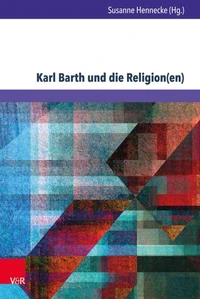Im Laboratorium. Öffentliche Theologie und das Beschreiben ihrer Gegenwart
Par :Formats :
Disponible dans votre compte client Decitre ou Furet du Nord dès validation de votre commande. Le format PDF est :
- Compatible avec une lecture sur My Vivlio (smartphone, tablette, ordinateur)
- Compatible avec une lecture sur liseuses Vivlio
- Pour les liseuses autres que Vivlio, vous devez utiliser le logiciel Adobe Digital Edition. Non compatible avec la lecture sur les liseuses Kindle, Remarkable et Sony
 , qui est-ce ?
, qui est-ce ?Notre partenaire de plateforme de lecture numérique où vous retrouverez l'ensemble de vos ebooks gratuitement
Pour en savoir plus sur nos ebooks, consultez notre aide en ligne ici
- Nombre de pages144
- FormatPDF
- ISBN978-3-374-06687-2
- EAN9783374066872
- Date de parution01/12/2020
- Protection num.Digital Watermarking
- Taille1 Mo
- Infos supplémentairespdf
- ÉditeurEvangelische Verlagsanstalt
Résumé
Öffentliche Theologie analysiert Religion in der Gesellschaft und leitet ethische Positionen aus religiösen Traditionen ab. Plausibel soll dies durch eine 'Übersetzung' in säkulare Diskurse werden, was vielfältig kritisiert wird. Dies fordert zu Reflexionen heraus, ob Öffentliche Theologie nicht bereits in ihren Beschreibungen ein ethisch-aktives Element hat. Sie wäre dann weniger Reaktion auf eine beschriebene Wirklichkeit als selbst in ihren Beschreibungen experimentell wirksam - wie ein Laboratorium mit Wechselwirkung von Beschreibung und Aktion.
Dies wird an Bonhoeffers Theologie, dem Verhältnis von Metaphysik und Säkularität, einem hinterfragten Öffentlichkeitsbegriff, einer Verschiebung von Christologie und einer Modifizierung theologischer Ethik konkret. Mit Beiträgen von Jürgen Bründl, Katharina Eberlein-Braun, Fulvio Ferrario, Christoph Hübenthal, Rebekka A. Klein und Thomas Wabel. [A Laboratory. Public Theology and Descriptions of its Present] Public Theology analyses the role of religion in society and deduces ethical positions from religious traditions.
An instrument for this, the translation into secular discourse, has already been criticised. Therefore it is necessary to reflect whether Public Theology is already ethically active by describing its present. Public Theology then wouldn't be a reaction to a described reality but rather have an experimental effect by describing reality - like a laboratory with its interdependence of description and action.
This is shown by reflecting two theological strategies in Bonhoeffer's thoughts, by reflecting on metaphysics and secularity, by criticising the concept of the public, by shifting the understanding of Christology and widening the meaning of theological ethics.
Dies wird an Bonhoeffers Theologie, dem Verhältnis von Metaphysik und Säkularität, einem hinterfragten Öffentlichkeitsbegriff, einer Verschiebung von Christologie und einer Modifizierung theologischer Ethik konkret. Mit Beiträgen von Jürgen Bründl, Katharina Eberlein-Braun, Fulvio Ferrario, Christoph Hübenthal, Rebekka A. Klein und Thomas Wabel. [A Laboratory. Public Theology and Descriptions of its Present] Public Theology analyses the role of religion in society and deduces ethical positions from religious traditions.
An instrument for this, the translation into secular discourse, has already been criticised. Therefore it is necessary to reflect whether Public Theology is already ethically active by describing its present. Public Theology then wouldn't be a reaction to a described reality but rather have an experimental effect by describing reality - like a laboratory with its interdependence of description and action.
This is shown by reflecting two theological strategies in Bonhoeffer's thoughts, by reflecting on metaphysics and secularity, by criticising the concept of the public, by shifting the understanding of Christology and widening the meaning of theological ethics.
Öffentliche Theologie analysiert Religion in der Gesellschaft und leitet ethische Positionen aus religiösen Traditionen ab. Plausibel soll dies durch eine 'Übersetzung' in säkulare Diskurse werden, was vielfältig kritisiert wird. Dies fordert zu Reflexionen heraus, ob Öffentliche Theologie nicht bereits in ihren Beschreibungen ein ethisch-aktives Element hat. Sie wäre dann weniger Reaktion auf eine beschriebene Wirklichkeit als selbst in ihren Beschreibungen experimentell wirksam - wie ein Laboratorium mit Wechselwirkung von Beschreibung und Aktion.
Dies wird an Bonhoeffers Theologie, dem Verhältnis von Metaphysik und Säkularität, einem hinterfragten Öffentlichkeitsbegriff, einer Verschiebung von Christologie und einer Modifizierung theologischer Ethik konkret. Mit Beiträgen von Jürgen Bründl, Katharina Eberlein-Braun, Fulvio Ferrario, Christoph Hübenthal, Rebekka A. Klein und Thomas Wabel. [A Laboratory. Public Theology and Descriptions of its Present] Public Theology analyses the role of religion in society and deduces ethical positions from religious traditions.
An instrument for this, the translation into secular discourse, has already been criticised. Therefore it is necessary to reflect whether Public Theology is already ethically active by describing its present. Public Theology then wouldn't be a reaction to a described reality but rather have an experimental effect by describing reality - like a laboratory with its interdependence of description and action.
This is shown by reflecting two theological strategies in Bonhoeffer's thoughts, by reflecting on metaphysics and secularity, by criticising the concept of the public, by shifting the understanding of Christology and widening the meaning of theological ethics.
Dies wird an Bonhoeffers Theologie, dem Verhältnis von Metaphysik und Säkularität, einem hinterfragten Öffentlichkeitsbegriff, einer Verschiebung von Christologie und einer Modifizierung theologischer Ethik konkret. Mit Beiträgen von Jürgen Bründl, Katharina Eberlein-Braun, Fulvio Ferrario, Christoph Hübenthal, Rebekka A. Klein und Thomas Wabel. [A Laboratory. Public Theology and Descriptions of its Present] Public Theology analyses the role of religion in society and deduces ethical positions from religious traditions.
An instrument for this, the translation into secular discourse, has already been criticised. Therefore it is necessary to reflect whether Public Theology is already ethically active by describing its present. Public Theology then wouldn't be a reaction to a described reality but rather have an experimental effect by describing reality - like a laboratory with its interdependence of description and action.
This is shown by reflecting two theological strategies in Bonhoeffer's thoughts, by reflecting on metaphysics and secularity, by criticising the concept of the public, by shifting the understanding of Christology and widening the meaning of theological ethics.


